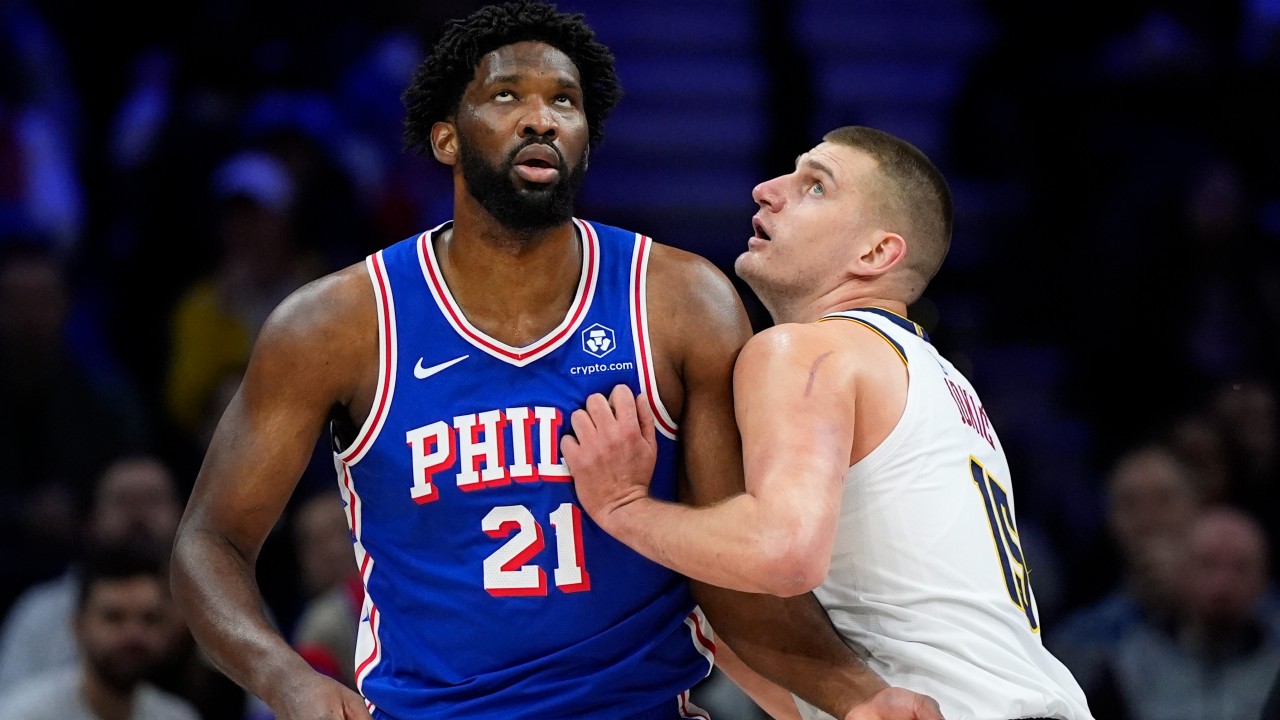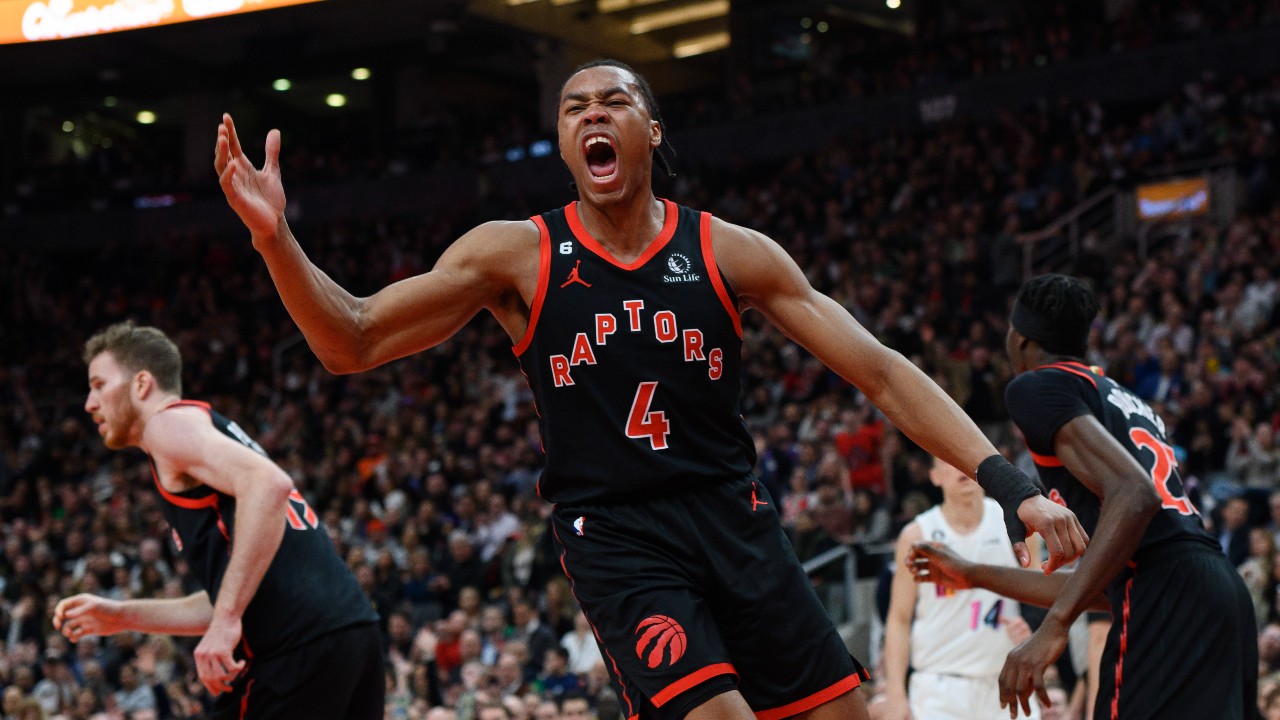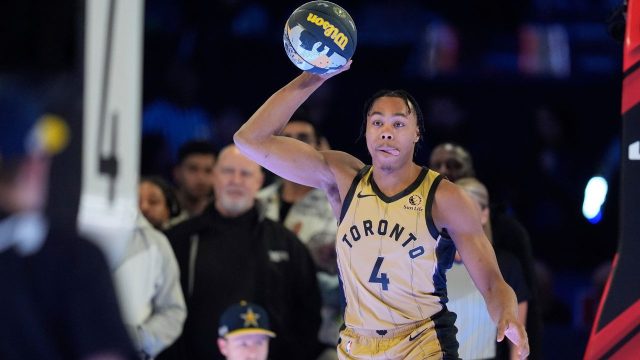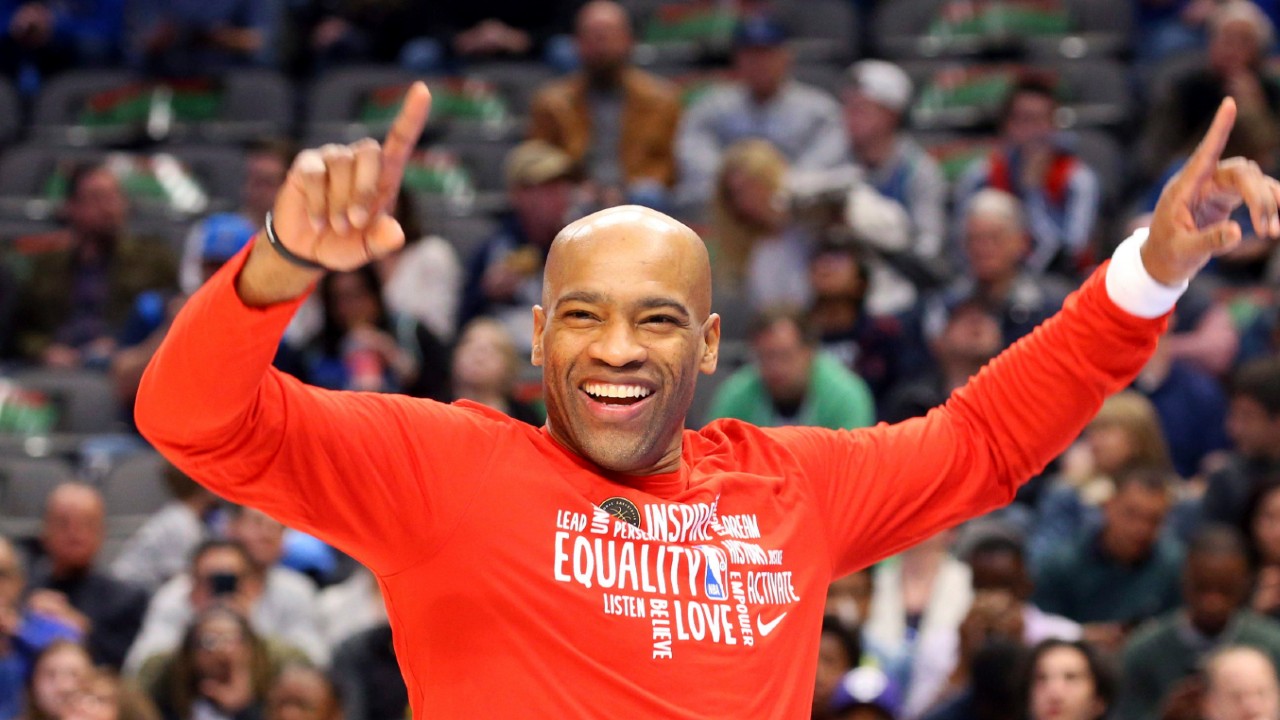
Batteries recharged, championship aspirations taking shape, tanking efforts blowing full steam ahead, it’s the sweet smell of the post-NBA All-Star stretch run in the air.
There is a new wrinkle to look out for this time around, as the best players in the league will take special note of how many games they’ve played and how many more are required to hit the now mandated 65-game minimum for end-of-season awards.
“I can tell you that the number of games that players have participated in is up this season, and interestingly enough, injuries are actually down,” NBA commissioner Adam Silver said at his annual All-Star weekend press conference. “Whether that’s meaningful data yet, I don’t know. I think the right time to take a further look at this rule is at the end of the season when we see — sort of at least have a year under our belt.”
Silver and the NBA’s board of governors reached a tipping point last season. Teams and players took load/injury management to what they considered an extreme by prioritizing health over playing both ends of a back-to-back regardless of whether it was a nationally televised game. More elite teams viewed games against tanking teams as an opportunity to rest their best players. Neither governors or fans felt they were getting their money’s worth.
In response, the NBA collectively bargained with the players to institute a 65-game rule to be eligible for individual awards — which would also have a direct impact on the maximum salary they’d be eligible for. Play fewer than 65 games and no player would be eligible for Most Valuable Player, Defensive Player of the Year, Most Improved Player or any of the All-NBA or All-Defensive teams. Rookie of the Year, Sixth Man of the Year and All-Rookie teams are three categories that are not impacted by the new rule.
For a game to count toward the 65-game tally, the player must have logged a minimum of 20 minutes, but two instances of logging fewer than 20 minutes are allowed if the player has played at least 15 minutes in those games. A player can also be eligible if he’s played 62-64 games but only if he suffers a season-ending injury thereafter.
There’s your crash course. The results so far have the reigning MVP already out of the conversation, a surefire All-NBA selection at risk of missing out and a host of other players having to hope the injury bug doesn’t come find them for even a week.
Here’s a deeper look at the players most impacted by the new rule this season:
INELIGIBLE
(HAVE ALREADY MISSED 18 GAMES OR MORE)
Joel Embiid: Played 34/54 games. Potential awards: MVP, DPOY, All-NBA, All-Def.
Kyrie Irving: Played 33/55 games. Potential awards: All-NBA
Jimmy Butler: Played 37/55 games. Potential awards: All-NBA, All-Def.
Draymond Green: Played 29/53 games. Potential awards: All-Def.
Averaging a league-leading 35.3 points, 11.3 rebounds, a career-high 5.7 assists, 1.1 steals and 1.8 blocks, Joel Embiid is the headliner who is no longer eligible for any of the end-of-season awards when he would otherwise be the frontrunner and primed to win back-to-back MVP titles.
Embiid was battling a knee issue and, after sitting out a few games, elected to return to action against the Golden State Warriors on Jan. 30 having played 33 of 45 games and being able to miss only five more for the season. He played 30 minutes in the game before getting accidentally landed on while pursuing a loose ball, exacerbating the issue and requiring surgery to address his left meniscus.
While the Sixers are hopeful he can return before the post-season, seeing an MVP-calibre season go down in flames like this makes one wonder if he would have taken more time to recover if the 65-game rule didn’t exist. Voters have generally used around 55 games as an unwritten number of games to play in order to earn a vote, so it’s quite possible Embiid would have missed out anyway.
Kyrie Irving is having a terrific season for Dallas with 25.5 points, 5.2 rebounds, 5.5 assists and 1.3 steals while flirting with 50-40-90 shooting splits, but has no shot at an All-NBA team selection because he can reach a maximum of only 60 games played. Jimmy Butler’s numbers aren’t eye-popping, as usual, but the Miami forward remains one of the best players in the league and would normally get consideration for an All-NBA or All-Defensive team.
Draymond Green is still one of the best defenders in the league and has a huge say in his team’s success. Though he’s missed only seven games because of injury, a 12-game suspension for striking Jusuf Nurkic in the face coupled with a five-game suspension for putting Rudy Gobert in a chokehold have ruled out his eligibility for any defensive recognition.
ON THE BUBBLE
(CURRENT PACE WILL MISS OUT)
Tyrese Haliburton: Played 43/56 games, on pace for 63 games. Potential awards: MIP, All-NBA
Kristaps Porzingis: Played 40/55 games, on pace for 60 games. Potential awards: All-NBA
Jalen Johnson: Played 41/55 games, on pace for 61 games. Potential awards: MIP
Tyrese Haliburton makes for such an interesting case study in this debate over whether the 65-game rule is truly a step in the right direction. Without it, Haliburton would unquestionably make an All-NBA team as a guard, as he’s led Indiana to the league’s best offence with 21.8 points and a league-leading 11.7 assists. Because of the rule, though, he’s played with an injured hamstring to maximize his earning potential and can miss only up to three of the remaining 26 games. That can’t be an unintended consequence of the rule.
Turning 24 on Feb. 29, Haliburton has an extension set to kick in at the start of next season but it will be worth $204 million over five years if he doesn’t make an All-NBA team, as opposed to $246 million over five years if he does. With these significant financial ramifications, Haliburton returned to the lineup ahead of schedule and had a stretch of four games in a row where he played just over 20 minutes to meet the eligibility criteria explained earlier in this story.
Going back to Silver’s comments about player participation being up and injuries being down, how does this spell of games for Haliburton and possibly others who have done similar get factored? He sacrificed his body because of the rule and is lucky his condition didn’t worsen. He’s played 43 games and can’t miss up to four games instead of three because on Jan. 8, against Boston, Haliburton played only 13 minutes because of his injury and so that game can’t count toward his eligibility.
Kristaps Porzingis was languishing in Washington before Boston dragged him out of there. Now, he’s played a key part in the Celtics’ 43-12 team that sits atop the Eastern Conference with 20.2 points, 6.9 rebounds and 1.9 blocks while shooting 36.8 per cent from three and a blistering 63.7 per cent on twos. While Jaylen Brown played in the All-Star Game, Porzingis has a strong case to be viewed as Boston’s second-best player and should receive All-NBA consideration as a result.
Porzingis can miss only one game moving forward because he played just six minutes on Jan. 6 because of an injury sustained via a poke to the eye and that puts him at 39 eligible games with 27 games to play.
Jalen Johnson is one of the leading candidates to win the Most Improved Player award. After averaging just 5.6 points, 4.0 rebounds and 1.2 assists to go along with half a steal and half a block last season, the Hawks power forward has put up 15.7 points, 8.6 rebounds, 3.3 assists, 1.2 steals and just under a block in 41 games.
The talented 22-year-old played just eight minutes before suffering a fractured wrist on a fall in a Nov. 25 game, and so that game will not count toward his eligibility. He can’t miss more than two games moving forward.
NEED TO BE WARY
(CURRENT PACE AT RISK OF MISSING OUT)
Donovan Mitchell: Played 44/53 games, on pace for 68 games. Potential awards: All-NBA
Devin Booker: Played 45/55 games, on pace for 67 games. Potential awards: All-NBA
Bam Adebayo: Played 45/55 games, on pace for 67 games. Potential awards: DPOY, All-Def.
Julius Randle: Played 46/55 games, on pace for 69 games. Potential awards: All-NBA
Lauri Markkanen: Played 46/56 games, on pace for 67 games. Potential awards: All-NBA
The one to really keep an eye on here is Julius Randle. He’s missed the last nine games for the New York Knicks with a dislocated shoulder, missed the All-Star Game as well and doesn’t have a concrete return timetable. Averaging 24 points, 9.2 rebounds and five assists, Randle would surely receive some All-NBA consideration at the forward spot, if eligible.
The 65-game rule has certainly complicated matters for these players and will continue to do so. While having a 79 per cent participation rate seems a fair marker to be in consideration for awards of excellence, Silver and the league also need to acknowledge their part in teams still having an average of 13.3 back-to-back sets this season that undermines a player’s ability to play.
The second night of a back-to-back has proven to be a significantly diminished product. It is also the most likely scenario for players to seek rest. If this continues to decline as it has over the past decade or even be eliminated completely, then it does seem more reasonable to have a hard rule on games played.
Voters have historically weighed games played as a factor but just haven’t had to have a hard cut-off until now. Should a player really be counted out if he’s played 64 games instead of 65 when the player ahead of them has played 65 but wasn’t as productive or impactful? There’s plenty to debate on both sides.
Kawhi Leonard has played 60, 57, 52 and 52 games in each of the last four seasons he’s participated (missed 2021-22 entirely due to injury) but is now already at 48 games out of 53 played and on course to play the most games he’s played in a season. How much of that is the new rule and how much of that is him just finally being healthy?
As with a lot of things that are introduced for the first time, there are going to be both positives and negatives, and opportunities for refinement. Striking the right balance is key, though, as the stakes are extremely significant when considering the magnitude of these awards and the resulting salary impact.







